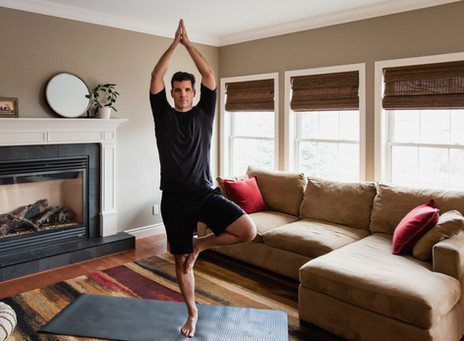Navigating the Pressures of Masculinity
- Marek Buchanan

- Jun 26, 2025
- 4 min read
Updated: Jul 3, 2025
Conversations challenging many of the traditional masculine values in North American society have increased and deepened over the last decade. Lots of men have been uncertain about how to feel or respond to these critiques. They hear countless messages about how those traditional values are harmful, toxic, or sexist, but almost as many messages about how men who stray from those values are weak, unattractive failures.
With so many differing opinions and passionate perspectives, it can be confusing to know how to act in today’s world. So let’s talk about how men, or those supporting men in their lives, can navigate these different pressures around masculinity.

Evaluate what you’ve been taught about manhood and masculinity.
Ask yourself: what does it mean to be a man? Consider the messages you’ve absorbed about masculinity and the ways you’ve seen it modelled for you. How have people–family, friends, partners– responded when you’ve tried to go against their idea of masculinity? This is important because, although it might feel like our understanding of something like masculinity is innate, it’s actually shaped by a lot of different forces–like our families, the media, and larger social structures–that are influencing us all the time. Before we even think about challenging or shifting our own understanding of what it means to be a man, we need to build an awareness that this understanding is constructed. From there, you can begin to reflect on what weight, or value, you want to give those sources of influence.
Think critically about what people are actually saying when they talk about masculinity.
Even though there’s a lot of conversation about men and masculinity, much of the language people use to talk about it is vague or coded. So when you hear someone talk about how masculinity is ‘toxic’–or about how we don’t have any ‘real men’ around anymore–you might want to consider what exactly they mean by that. What are the values, behaviours, and societal patterns they are explicitly referring to when they make those comments? It’s hard to know what you want to examine for yourself if it’s not even clear what people are talking about.
In general, it can be helpful to explore these ideas with people who have a more nuanced understanding, as well as empathy for other people’s perspectives. If someone is framing things in ‘all or nothing’ terms or using ‘us vs. them’ logic, that can make it more difficult to get a holistic picture of the potentially valid criticisms they have of contemporary masculinity.
Figure out what matters to you and why.
Regardless of other people’s opinions, you get to decide the values you want to live by. For example, maybe you value strength, intelligence, and hard work. On their face, those are noble values that contribute positively to our communities and society more generally. But what’s important is to ask yourself why those values are important to you. If we take away the external noise telling us how men are “supposed” to be, how would you choose to live your life? Does asking yourself why you hold certain values open up space to explore other values instead?
Feeling confident about the values that matter most to you creates a solid foundation for the choices and actions you want to take in life. This can help prevent the feeling that you’re being pushed and pulled by other people’s expectations and opinions. It also allows you to decide what values you want to look for in other people, and the community you want to surround yourself with more generally.
Consider the impact your values–and their corresponding actions–have on those around you.
Ensuring your actions are congruent with your values is important, but even when everything is in alignment, we still have to be aware of the impact our choices have on others. An easy--albeit extreme--example would be around relationship scripts. A traditional masculine value in prior decades has been that men have the right to sex by virtue of being men and the providers in the home. In fact, prior to 1983, Canada’s sexual assault laws reflected this belief as they didn’t actually cover assault between a married man and woman. This meant it was legal for a man to sexually assault his wife.
Of course, we all know that sexual assault is wrong, and consent education has done it's part to help us all understand that no one is ever entitled to sexual activity from another person, regardless of the circumstances. However, this is an example of how, just because a value might feel right to an individual (or society), the actions associated with that value can still detrimentally impact the safety and bodily autonomy of someone else. Again, this doesn’t mean one has to scrap everything associated with that value. Ultimately, if a man prefers to have more traditional gender roles in his relationships (e.g. the husband works and the wife looks after the kids and takes care of the home) that is perfectly fair. In that case, it’s just important to be clear about those values in order to find the partner/people who hold complementary views, rather than trying to impose those values on people who disagree with them, or aren’t interested in structuring their life that way.
How can therapy help you navigate the pressures of masculinity?
This blog post is short and simple, but that doesn’t mean that anything I’ve talked about in the post is actually short or simple to do or figure out. Some people might feel confident in their ability to navigate the pressures of masculinity on their own, or with their own support system. However, for those who don’t, a therapist can help sort through the conflicting messages and resulting confusion that many men and boys are grappling with. Therapy provides a safe place to ask questions and practice being vulnerable–something many of us haven’t had access to before. It can also help us gain the skills needed to build relationships with people outside of our families and immediate social circles to help combat feelings of loneliness or isolation which are unfortunately common among men in our society.

















Comments